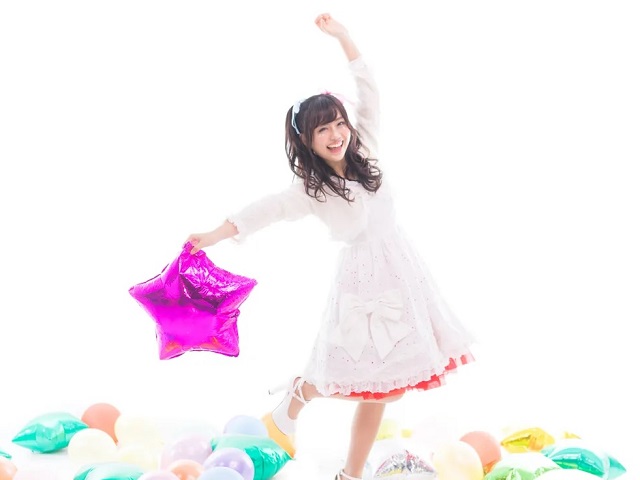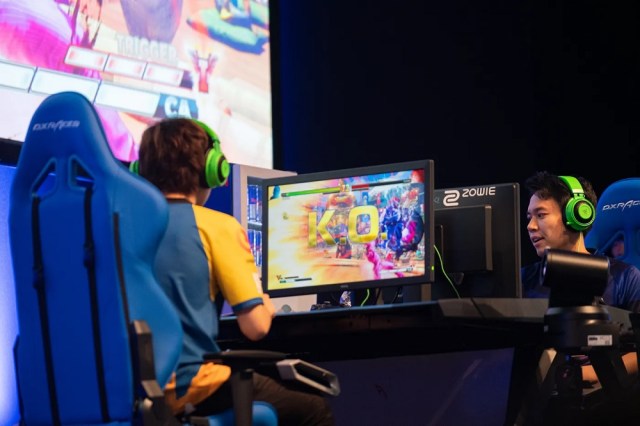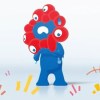
Oshi kyuka will be good for employees and the customers they serve, boss says.
Over the last few years, the word “oshi” has caught on in Japan. Originally meaning “support,” it’s now used to describe a favorite fictional character or real-world performer, such as an anime character, or idol singer.
Something else that’s been catching on in Japan is a greater appreciation for the importance of work/private life balance, and so next month a company in Sapporo will begin offering its employees oshi kyuka, special paid vacation days that they can take for oshi-related activities such as attending concerts or fan events.
The system is being implemented at Arisu Hoikuen, a day care center in Sapporo’s Nishi Ward. Childcare is busy work, and Arisu is open from morning to night not just during the week, but on weekends and holidays too. Overwork, though, isn’t good for the workers or the kids they’re taking care of, says Masashi Endo, Arisu’s director. “The work our staff does takes a lot of energy, so I’ve been looking for ways to alleviate even a little of their physical and mental fatigue.”
In addition to their pre-existing vacation days, the staff at Arisu Hoikuen will be given 10 days they can take off from work for oshi-related activities. For example, one of the employees is an e-sports fan and plans to take a day off to watch a tournament his favorite pro gamer is scheduled to compete in.
Endo himself is a big fan of Japanese rock band Buck-Tick, and other workers who are also music fans will have the option of taking days off to attend live shows. Arisu appears to be taking a pretty loose, accommodating definition of “oshi,” too, beyond its customary reference to a person or persona. Another employee intends to take “Disneyland oshi” time off in order to visit the theme park and get some limited-edition Toy Story merch. Given that broad interpretation’s applicability, it would seem that “ramen oshi,” “TV oshi,” and even “bed oshi” would also be allowable for those who want a day off to go out to eat, chill out on their sofa, or just sleep in until a luxuriously late hour.
“I believe that our workers being happy leads to the children being happy,” Endo says. “I think our staff’s happiness will naturally show while they’re at work if they’re feeling fulfilled in their private lives, so I hope this new system will result in a happier environment for the kids too,” so if everything goes according to plan, the oshi vacation system sounds like a win-win.
Source: NHK News Web via Hachima Kiko
Top image: Pakutaso
Insert image: Pakutaso
● Want to hear about SoraNews24’s latest articles as soon as they’re published? Follow us on Facebook and Twitter!


 Japanese company allows workers to take vacation to grieve if favorite idol singer gets married
Japanese company allows workers to take vacation to grieve if favorite idol singer gets married Do Japanese superfans really want to marry their favorite idol?【Survey】
Do Japanese superfans really want to marry their favorite idol?【Survey】 Dedicate your savings to your oshi of choice with this new buildable offertory box
Dedicate your savings to your oshi of choice with this new buildable offertory box We got a massage and talked games at Tokyo clinic made for and run by otaku
We got a massage and talked games at Tokyo clinic made for and run by otaku Oshi kamidana – Literal altars you can build to enshrine your favorite anime character or idol
Oshi kamidana – Literal altars you can build to enshrine your favorite anime character or idol McDonald’s new Happy Meals offer up cute and practical Sanrio lifestyle goods
McDonald’s new Happy Meals offer up cute and practical Sanrio lifestyle goods All-you-can-drink Starbucks and amazing views part of Tokyo’s new 170 meter-high sky lounge
All-you-can-drink Starbucks and amazing views part of Tokyo’s new 170 meter-high sky lounge More foreign tourists than ever before in history visited Japan last month
More foreign tourists than ever before in history visited Japan last month The oldest tunnel in Japan is believed to be haunted, and strange things happen when we go there
The oldest tunnel in Japan is believed to be haunted, and strange things happen when we go there Randomly running into a great sushi lunch like this is one of the best things about eating in Tokyo
Randomly running into a great sushi lunch like this is one of the best things about eating in Tokyo Disney princesses get official manga makeovers for Manga Princess Cafe opening in Tokyo
Disney princesses get official manga makeovers for Manga Princess Cafe opening in Tokyo Japanese gravure idol makes jaws drop with massive M-cup chest 【Pics & Videos】
Japanese gravure idol makes jaws drop with massive M-cup chest 【Pics & Videos】 Hey, Japanese taxi driver! Take us to your favorite restaurant in Tsuruga City!
Hey, Japanese taxi driver! Take us to your favorite restaurant in Tsuruga City! Beautiful 3-D rendered One Piece fan art will have you reaching for the tissues
Beautiful 3-D rendered One Piece fan art will have you reaching for the tissues Osaka’s creepy cute mascot speaks for first time, adds more fuel the creepy OR cute debate【Video】
Osaka’s creepy cute mascot speaks for first time, adds more fuel the creepy OR cute debate【Video】 We try out “Chan Ramen”, an underground type of ramen popular in the ramen community
We try out “Chan Ramen”, an underground type of ramen popular in the ramen community Starbucks reopens at Shibuya Scramble Crossing with new look and design concept
Starbucks reopens at Shibuya Scramble Crossing with new look and design concept Beautiful new Final Fantasy T-shirt collection on the way from Uniqlo【Photos】
Beautiful new Final Fantasy T-shirt collection on the way from Uniqlo【Photos】 Foreign English teachers in Japan pick their favorite Japanese-language phrases【Survey】
Foreign English teachers in Japan pick their favorite Japanese-language phrases【Survey】 Is the new Shinkansen Train Desk ticket worth it?
Is the new Shinkansen Train Desk ticket worth it? There’s a park inside Japan where you can also see Japan inside the park
There’s a park inside Japan where you can also see Japan inside the park Japanese convenience store packs a whole bento into an onigiri rice ball
Japanese convenience store packs a whole bento into an onigiri rice ball Studio Ghibli releases Kiki’s Delivery Service chocolate cake pouches in Japan
Studio Ghibli releases Kiki’s Delivery Service chocolate cake pouches in Japan Japan’s bone-breaking and record-breaking roller coaster is permanently shutting down
Japan’s bone-breaking and record-breaking roller coaster is permanently shutting down New definition of “Japanese whiskey” goes into effect to prevent fakes from fooling overseas buyers
New definition of “Japanese whiskey” goes into effect to prevent fakes from fooling overseas buyers Foreign passenger shoves conductor on one of the last full runs for Japan’s Thunderbird train
Foreign passenger shoves conductor on one of the last full runs for Japan’s Thunderbird train Our Japanese reporter visits Costco in the U.S., finds super American and very Japanese things
Our Japanese reporter visits Costco in the U.S., finds super American and very Japanese things Kyoto bans tourists from geisha alleys in Gion, with fines for those who don’t follow rules
Kyoto bans tourists from geisha alleys in Gion, with fines for those who don’t follow rules Studio Ghibli unveils Mother’s Day gift set that captures the love in My Neighbour Totoro
Studio Ghibli unveils Mother’s Day gift set that captures the love in My Neighbour Totoro Domino’s Japan now sells…pizza ears?
Domino’s Japan now sells…pizza ears? New Japanese KitKat flavour stars Sanrio characters, including Hello Kitty
New Japanese KitKat flavour stars Sanrio characters, including Hello Kitty Sales of Japan’s most convenient train ticket/shopping payment cards suspended indefinitely
Sales of Japan’s most convenient train ticket/shopping payment cards suspended indefinitely Sold-out Studio Ghibli desktop humidifiers are back so Totoro can help you through the dry season
Sold-out Studio Ghibli desktop humidifiers are back so Totoro can help you through the dry season Japanese government to make first change to romanization spelling rules since the 1950s
Japanese government to make first change to romanization spelling rules since the 1950s Ghibli founders Toshio Suzuki and Hayao Miyazaki contribute to Japanese whisky Totoro label design
Ghibli founders Toshio Suzuki and Hayao Miyazaki contribute to Japanese whisky Totoro label design Doraemon found buried at sea as scene from 1993 anime becomes real life【Photos】
Doraemon found buried at sea as scene from 1993 anime becomes real life【Photos】 Tokyo’s most famous Starbucks is closed
Tokyo’s most famous Starbucks is closed One Piece characters’ nationalities revealed, but fans have mixed opinions
One Piece characters’ nationalities revealed, but fans have mixed opinions We asked a Uniqlo employee what four things we should buy and their suggestions didn’t disappoint
We asked a Uniqlo employee what four things we should buy and their suggestions didn’t disappoint Princesses, fruits, and blacksmiths: Study reveals the 30 most unusual family names in Japan
Princesses, fruits, and blacksmiths: Study reveals the 30 most unusual family names in Japan Studio Ghibli’s new desktop Howl’s Moving Castle will take your stationery on an adventure
Studio Ghibli’s new desktop Howl’s Moving Castle will take your stationery on an adventure Some important Christmas shopping advice for parents of otaku and fujoshi kids
Some important Christmas shopping advice for parents of otaku and fujoshi kids Our reporter illustrates their first experience attending a fan photo event with an oshi
Our reporter illustrates their first experience attending a fan photo event with an oshi Support your faves and avoid oshikatsu burnout — advice from our resident otaku
Support your faves and avoid oshikatsu burnout — advice from our resident otaku Japanese otaku now have special trash box just for merch of their former anime and idol crushes
Japanese otaku now have special trash box just for merch of their former anime and idol crushes Japanese government mulling over potential four-day working week
Japanese government mulling over potential four-day working week What do Japanese kids want to be when they grow up? For 30 percent of boys, YouTubers, survey says
What do Japanese kids want to be when they grow up? For 30 percent of boys, YouTubers, survey says The anime crush savings plan: Woman explains how to save thousands of dollars, have fun doing it
The anime crush savings plan: Woman explains how to save thousands of dollars, have fun doing it Government survey finds teleworking at least once per week raises Japanese worker happiness level
Government survey finds teleworking at least once per week raises Japanese worker happiness level Tokyo police create public service warning about kids obsessing over their favorite male idols
Tokyo police create public service warning about kids obsessing over their favorite male idols Japan’s “workstyle reforms” are actually making managers’ jobs a lot harder【Survey】
Japan’s “workstyle reforms” are actually making managers’ jobs a lot harder【Survey】 Microsoft Japan’s experiment with 3-day weekend boosts worker productivity by 40 percent
Microsoft Japan’s experiment with 3-day weekend boosts worker productivity by 40 percent Japanese politicians want workers across country to have option for three-day weekends every week
Japanese politicians want workers across country to have option for three-day weekends every week Final Fantasy developer Square Enix makes working from home a permanent option for employees
Final Fantasy developer Square Enix makes working from home a permanent option for employees Akihabara capsule toy lucky bag is filled with cute characters and cool crap (literally)【Photos】
Akihabara capsule toy lucky bag is filled with cute characters and cool crap (literally)【Photos】 A massive photo collection of the coolest anime figures from Winter Wonder Festival
A massive photo collection of the coolest anime figures from Winter Wonder Festival Japan’s bonenkai parties are the worst thing about the end of the year. Here’s how to fix them
Japan’s bonenkai parties are the worst thing about the end of the year. Here’s how to fix them
Leave a Reply